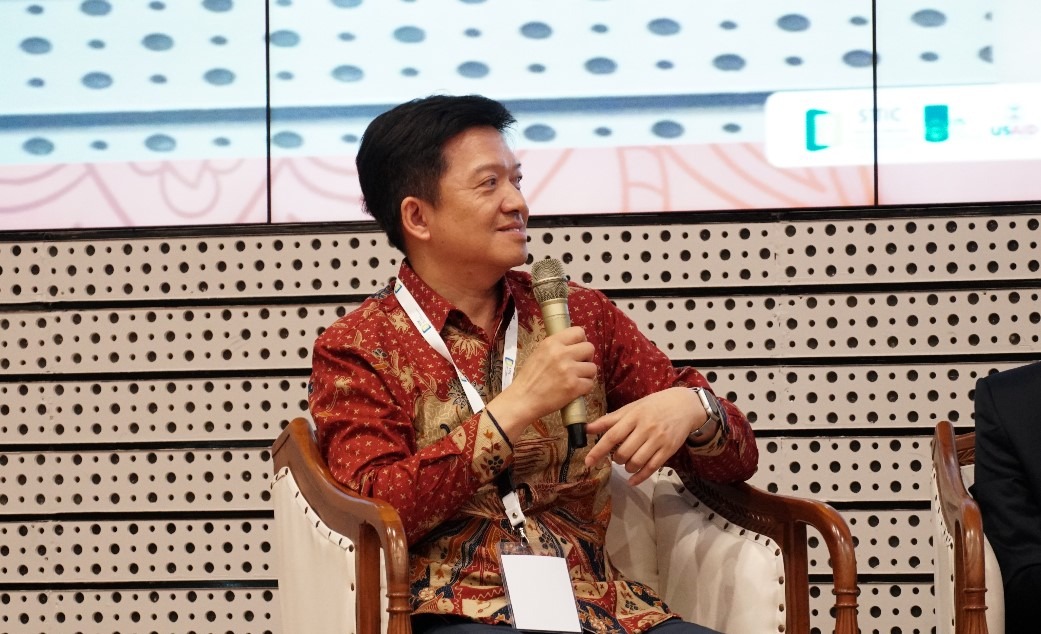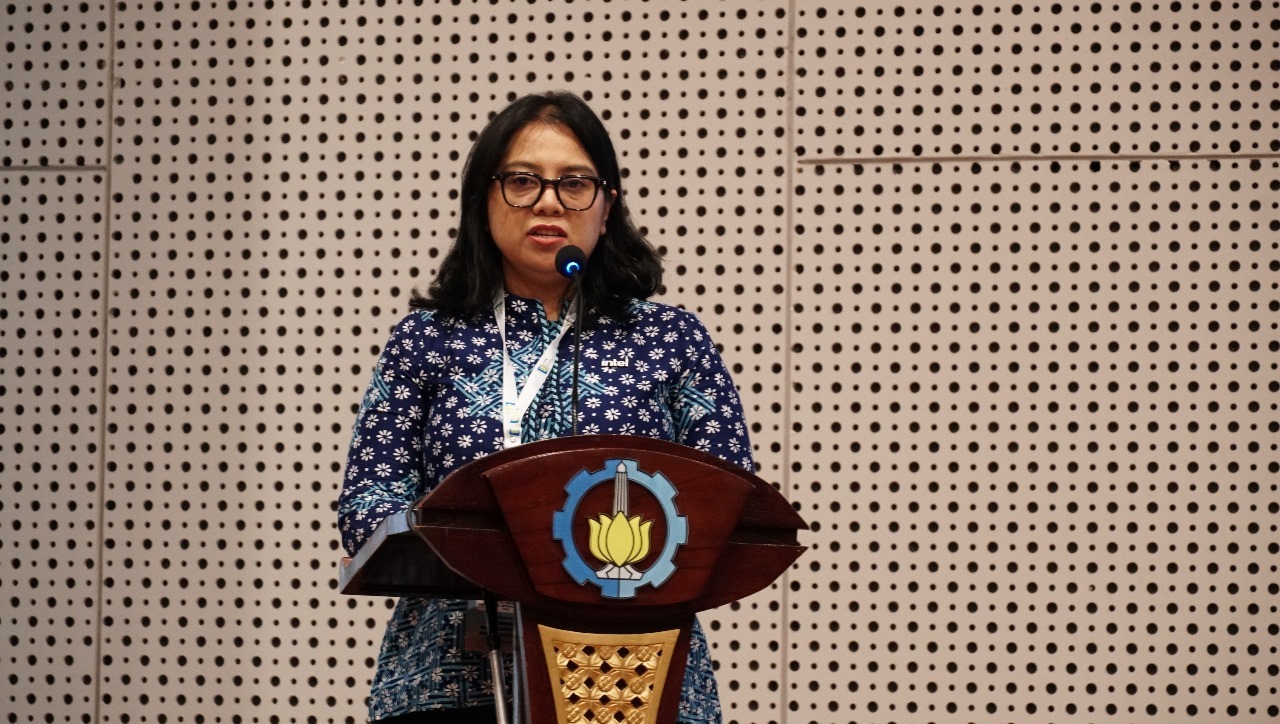ITS Collaborates with International Partners to Advance Semiconductor Industry
Practitioners and academics at the International Conference on Sustainable Semiconductor Manufacturing at the ITS Research Center Auditorium
ITS Campus, ITS News – To drive the development of Indonesia’s semiconductor industry, Institut Teknologi Sepuluh Nopember (ITS) has partnered with the National Taiwan University of Science and Technology (NTUST) to host the International Conference on Sustainable Semiconductor Manufacturing. The conference, held at the ITS Research Center Auditorium on Tuesday (August 13), featured practitioners from Indonesia, Taiwan, and the United States.
Collaborating with the Taipei Economic and Trade Office (TETO) and the U.S. Consulate General in Surabaya, the event explored sustainable semiconductor manufacturing for Indonesia. Among the attendees were TUL Corporation CEO Ted Chen, TETO Indonesia representative John C. Chen, U.S. Consul General in Surabaya Chris Green, and the Director of Research Funding and Innovation at Indonesia’s National Research and Innovation Agency (BRIN), Dr. Ajeng Arum Sari.
ITS Rector Ir Bambang Pramujati ST MSc Eng PhD delivered his remarks at the International Conference on Sustainable Semiconductor Manufacturing at the ITS Research Center Auditorium
In his opening remarks, ITS Rector Ir Bambang Pramujati ST MSc Eng PhD highlighted Indonesia’s natural wealth and its significant potential for semiconductor production. He emphasized that the semiconductor sector could play a key role in boosting the nation’s economy. “The development of the semiconductor industry can create jobs and reduce dependency on imports,” said Bambang, also known by his initials BP.
However, BP noted that Indonesia faces various challenges in the industry’s development, including a shortage of skilled professionals and the need for extra efforts in eco-friendly production. “Collaboration with international partners, such as the United States and Taiwan, which are well-established in this field, is essential,” added the ITS Mechanical Engineering Department professor.

Dean of the College of Electrical Engineering and Computer Science NTUST ITS Prof Dr Jenq-Shiou Leu while presenting the semiconductor industry ecosystem in Taiwan
Meanwhile, NTUST College of Electrical Engineering and Computer Science Dean Prof. Dr. Jenq-Shiou Leu remarked that Taiwan’s semiconductor industry has developed a complete supply chain. This is driven by the need to meet the high demand for semiconductors’ primary product: integrated circuits, commonly known as chips.
Leu further explained that chips are the core components that power electronic devices. The wafer-like chips are essential for most technology companies. Given the high demand, Leu emphasized the critical role of chip production in sustaining the semiconductor industry. “The three main stages in chip production—design, manufacturing, and testing/packaging—are crucial,” he stressed.

Intel Corporation’s Director of International Government Affairs, Anna Baweh, explains the semiconductor industry’s steps towards environmental sustainability
Reporter: Aghnia Tias Salsabila
Related News
-
ITS Wins 2024 Project Implementation Award for Commitment to Gender Implementation
ITS Campus, ITS News —Not only technology-oriented, Institut Teknologi Sepuluh Nopember (ITS) also show its commitment to support gender
August 13, 2024 18:08 -
ITS Professor Researched the Role of Human Integration in Sustainable Architecture
ITS Campus, ITS News –The developing era has an impact on many aspects of life, including in the field
August 13, 2024 18:08 -
ITS Sends Off Group for Joint Homecoming to 64 Destination Areas
ITS Campus, ITS News — Approaching Eid al-Fitr, the Sepuluh Nopember Institute of Technology (ITS) is once again facilitating academics who want
August 13, 2024 18:08 -
ITS Expert: IHSG Decline Has Significant Impact on Indonesian Economy
ITS Campus, ITS News — The decline in the Composite Stock Price Index (IHSG) by five percent on March 18,
August 13, 2024 18:08
